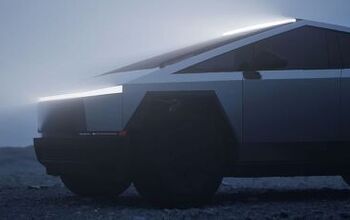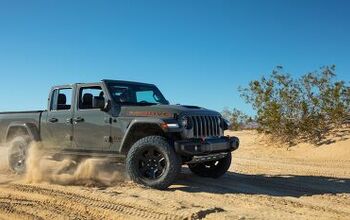These Are the 10 Least Reliable Car Brands, Says J.D. Power
The J.D. Power 2024 U.S. Vehicle Dependability Study has provided insights into vehicle reliability, indicating a general decline in dependability across the automotive industry. With the industry average
for problems per 100 vehicles (PP100) increasing to 190, the study highlights a growing concern for vehicle owners, particularly with brands that rank lowest in dependability. Here's a focus on the ten brands that are facing the most challenges according to the study.
The Bottom Ten
- Chrysler (310 PP100)
- Audi (275 PP100)
- Land Rover (268 PP100)
- Volkswagen (267 PP100)
- Lincoln (251 PP100)
- Volvo (245 PP100)
- Ford (239 PP100)
- Infiniti (219 PP100)
- Mercedes-Benz (218 PP100)
- Acura (216 PP100)
Core Findings and Brand Implications
While the study shows increased issues with infotainment systems and driver assistance technologies, it also brings to light the specific challenges faced by the bottom-ranked brands. Owners have noted problems ranging from the technological complexities of electric vehicles to the traditional mechanical issues.
Toyota and its luxury division, Lexus, have maintained top positions in the study. In contrast, the brands listed above have identified areas needing immediate attention to enhance their vehicles' dependability.
Understanding Vehicle Dependability
The 2024 U.S. Vehicle Dependability Study is based on comprehensive feedback from thousands of vehicle owners. It serves as a vital tool for consumers who value reliability in their vehicle purchasing decisions and for automakers striving to improve their products' performance.
J.D. Power's Role in Automotive Insights
J.D. Power, with its extensive use of big data, AI, and analytical models, continues to provide valuable insights into consumer behavior and industry trends. These insights aid businesses in shaping strategies that align with customer expectations and experiences.
This article was co-written using AI and was then heavily edited and optimized by our editorial team.
More by TTAC Staff
Latest Car Reviews
Read moreLatest Product Reviews
Read moreRecent Comments
- Bd2 They aren't "snubbing" BEVs - Toyota, for example, is investing billions to build BEVs in the US, including TWO 3-row crossovers.What they are doing is offering options - which is what any smart automaker would do.(Ignore the fake post by Anal.)
- Lou_BC Kia and Hyundai love fest. This smells of those advertising articles weakly disguised a legitimate article.
- Yuda I liked the unique styling of the CT, but an ev is still an evIt does seem to have it's fair share of problems though
- Jonathan I have respect, generally, for these companies (or at least Toyota and Subaru) and I tend to agree with them. Hybrids seem like a much more logical approach than pure EVs. Some of the advantages of EVs without all the drawbacks. And as someone else stated, Japan, as a culture, hasn't lost their collective minds like the U.S. and Europe have.
- EBFlex Unequivocally yes. EVs are a dead end. Despite governments forcing them on people, the people do not want them.


































Comments
Join the conversation